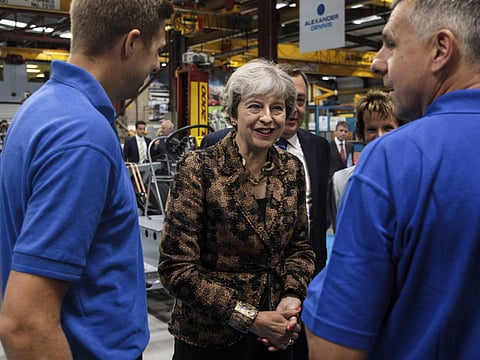Three reasons Remainers should stop calling for a second referendum on Brexit
Focusing on another vote means the real work of grass-roots campaigning and persuasion hasn’t taken off

With a monotonous regularity, calls for a second referendum are now the default setting of those who oppose the Brexit line of the British government, United Kingdom Independence Party (Ukip) and the official leadership of the Labour party. They began with a giant rally in London not long after the Brexit plebiscite. Since then, political personalities from London Mayor Sadiq Khan to Vince Cable, the Liberal Democrat leader, can always command a headline by calling for a second referendum. But right now, these calls are misplaced for three reasons.
The first is timing. Like calls for a second front invasion of France in 1942 and 1943, an early second referendum without proper planning and preparation could end up with the worst of all worlds for the anti-isolationist camp — namely, a confirmation of the June 2016 result.
Opinion polls certainly show a small but clear majority for Remain, and disappointment among Brexit voters too over issues including the fact that the National Health Service (NHS) will not benefit from that promised £350 million (Dh1.64 billion) a week. But there needs to be a decent interval between the original and any new referendum. The general election massively qualified the plebiscite result. The British Election Study’s survey of 30,000 voters showed more than a third switching to vote Labour in protest at Prime Minister Theresa May’s initial choice of a Ukip-style hard Brexit and the way she refused to reach out to the 48 per cent of voters who were not persuaded by the propaganda of the Leave camp.
Secondly, there would have to be a majority in the Commons to enact a new referendum law. If there is a majority for a second referendum, there would almost certainly be a majority for rejecting most of the hard Brexit options put forward by David Davis, the Brexit Secretary, Liam Fox, the Secretary of State for International Trade, Michael Gove, the Secretary of State for Environment, and Boris Johnson, the Foreign Secretary: May’s four musketeers from the extreme anti-European wing of the Tory party.
In February 2014, Swiss voters decided to back European Union (EU) immigration quotas. Their leaders bided their time and let the consequences of such a move sink in. More than a quarter of the Swiss population is foreign born, mainly from EU member states. The Swiss economy would collapse without access to European workers. Gradually, a consensus emerged in the Swiss parliament to find a way of managing immigration with internal labour market controls that avoided direct discrimination against EU workers.
This was acceptable to the European Commission, and the status quo before the referendum was restored.
If the Swiss, with their quasi-religious belief in direct democracy, can allow their parliament quietly to sideline a populist vote so clearly against the national interest, at some stage the House of Commons can move away from the current veneration of a referendum result based mainly on lies as the final word on Britain’s relations with the EU27.
Funding cuts
Thirdly, the demand for a second referendum immediately is like running away from a difficulty instead of confronting it. Remainers have wasted a year wringing their hands and moaning. Instead, they could have been organising Brexit audits in every constituency, to explain at a local level what Brexit entails — from the shutdown of European Investment Bank funds for housing and university funding cuts to the end of the dream of retirement to warmer parts of Europe while keeping all citizenship and health care rights. Renault boss Carlos Ghosn recently told the French press that “if walls go up between Britain and the continent that will affect future investment plans”.
A Brexit audit of Sunderland would certainly change minds among the majority of voters in the north east who voted Leave last year.
Public opinion is changing. That change can accelerate if pro-Europeans focus on telling local communities what Brexit really means and urging local farmers, small businesses, transport firms and universities to politely ask their local MPs if they really want to cause such damage to their voter base. Calls for a second referendum by political grandees and the London commentariat need to be parked for a while, so the focus can be on classic grass-roots organising, persuasion and campaigning. That really could bring about a rethink on Britain’s amputation from Europe.
— Guardian News & Media Ltd
Denis MacShane is the former minister for Europe and author of Brexit, No Exit: Why (in the End) Britain Won’t Leave Europe.



